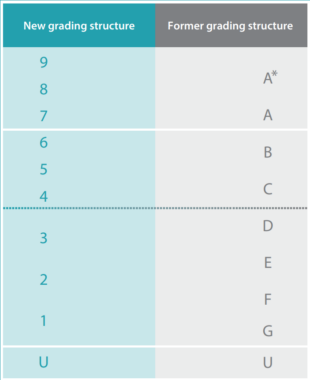
This month, students up and down the country will be getting results for their GCSEs and Level 2 and below vocational and technical qualifications (VTQs).
Here’s everything you need to know.
When will people get their GCSE or VTQ results?
GCSE results day is on Thursday 25 August 2022.
Results for level 2 and below vocational and technical qualifications (VTQs) (like Business and Technology Education Council qualifications (BTECs) and National Vocational Qualifications (NVQs)) used for progression in the same way as GCSEs will be issued on or before this date.
Schools and colleges will let pupils know how to collect their results. In most instances pupils will be able to go to their school or college and collect their results in person and get advice and support from their teachers if necessary.
Alternatively, they can plan to receive them via email, or another means by speaking to their school.
What is different about GCSE and VTQ results this year?
This year young people and students have taken summer GCSE and some VTQ exams for the first time following the disruption caused by the pandemic.
We want to return to a system where results are easily comparable between years but given that pupils who took exams this year have suffered disruption it is only fair that we do this in stages.
Results in summer 2022 will be higher than when summer exams were last sat, but lower than in 2021, when grades were awarded by teacher assessment.
VTQs are regulated in a different way to GCSEs, so awarding organisations (AOs) set their own grading scales. Ofqual's regulatory framework requires AOs to secure, as far as it is possible, that VTQ learners are not disadvantaged compared with their GCSE and A level peers. To do this we expect them to take account of the approach for GCSEs when setting standards in their own qualifications.
How do numerical GCSE grades work?
GCSEs are graded using a numerical system from 9 to 1. This replaced (from 2017 onwards) the previous system of grades A to E. These alphabetical grades are no longer awarded for GCSEs in England.
The highest grade is 9, while 1 is the lowest. The U grade means "ungraded".
Students who fail to achieve a grade 4 in English language and maths must continue to study these subjects and retake a qualification in them.
Ofqual has published this helpful guide to illustrate how the numerical grades compare to the old alphabetical ones

What if I don’t get the grades I expected?
It’s important to say that although grades are likely to be lower overall this year, this doesn’t mean a smaller proportion of pupils will be able to go on to further study.
For some students, results day confirms the next stage of their education and which school, college or apprenticeship they will go on to.
But others may have fallen short of what they hoped to get, and this can mean they have to change their plans. Others may have exceeded their expectations and want to change their plans.
In the first instance, you should talk to your school to discuss your options and they will be able to guide you through your options, which will include retakes, alternative courses and more.